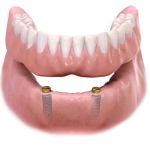Treatment for Tooth Sensitivity After Whitening
- 1. Introduction to Tooth Sensitivity After Whitening
- 2. Why Does Tooth Sensitivity Occur After Whitening?
- 3. Effective Treatments for Tooth Sensitivity After Whitening
- 4. Preventing Tooth Sensitivity After Whitening
- 5. When to Consult a Dentist
- 6. Conclusion: How to Manage Tooth Sensitivity After Whitening
Tooth whitening has become a popular cosmetic dental procedure, offering individuals a brighter, more youthful smile. However, one common side effect that many people experience after a whitening treatment is tooth sensitivity. This condition can cause discomfort or pain, especially when consuming hot, cold, or sugary foods. Understanding the causes of tooth sensitivity and exploring effective treatments is essential to ensure a positive whitening experience.
In this article, we will delve into the reasons why tooth sensitivity occurs after whitening treatments, explore some of the most effective treatments, and provide tips on how to prevent sensitivity in the future. If you're dealing with this issue, we will guide you through the steps to find relief and maintain your beautiful smile.
2. Why Does Tooth Sensitivity Occur After Whitening?
Tooth sensitivity after whitening is a common phenomenon, and it is typically caused by the ingredients used in whitening products, particularly hydrogen peroxide or carbamide peroxide. These ingredients work by breaking down the stains on your teeth and lightening the enamel, but this process can also cause temporary changes in your teeth's structure.
When the whitening agent penetrates the enamel, it can reach the dentin layer, which is much more sensitive than enamel. The dentin contains microscopic tubules that lead to the nerve of the tooth. As a result, the nerves in the dentin can become more exposed or irritated, leading to sensitivity. This sensitivity is often more noticeable when consuming hot or cold foods or drinks, or when brushing your teeth.
In addition to the whitening agents, other factors can contribute to tooth sensitivity, such as pre-existing gum recession, existing dental conditions like cavities, or overuse of whitening products. It's important to address these factors before undergoing a whitening treatment to minimize the chances of sensitivity occurring.
3. Effective Treatments for Tooth Sensitivity After Whitening
Fortunately, tooth sensitivity caused by whitening treatments is typically temporary and can be managed with a few simple remedies. Here are some of the most effective treatments:
- Desensitizing Toothpaste: One of the most recommended solutions for reducing tooth sensitivity is using a desensitizing toothpaste. These products contain compounds that help block the nerve signals in your teeth and can be used regularly to provide relief.
- Fluoride Treatment: Applying fluoride varnishes or gels to your teeth can help strengthen enamel and reduce sensitivity. Many dentists offer fluoride treatments that can be applied during your regular check-up.
- Cold or Warm Compress: If your teeth are feeling particularly sensitive, a warm or cold compress can help soothe the discomfort. Apply the compress to the outside of your mouth near the affected area for relief.
- Soft-Bristled Toothbrush: Switching to a soft-bristled toothbrush can minimize the irritation on sensitive teeth and gums, especially after whitening treatments. Brushing gently is key to avoiding further discomfort.
- Avoiding Trigger Foods: During the period of sensitivity, it’s important to avoid very hot, cold, or sugary foods and drinks. Stick to lukewarm foods and beverages to prevent triggering sensitivity.
By incorporating these treatments, most individuals experience significant improvement in their sensitivity within a few days to a week. However, if sensitivity persists, it’s essential to consult with your dentist for further evaluation.
4. Preventing Tooth Sensitivity After Whitening
While tooth sensitivity after whitening is common, there are steps you can take to minimize its occurrence in the first place. Here are some proactive tips to help you avoid sensitivity after whitening:
- Choose the Right Whitening Method: If you have sensitive teeth, opt for a whitening treatment that’s designed for sensitive teeth. These products are often gentler and can help prevent irritation.
- Follow the Instructions: It's important to follow the instructions provided with your whitening kit carefully. Overuse or improper application can lead to increased sensitivity. If you're unsure, seek professional whitening services from your dentist.
- Take Breaks Between Whitening Sessions: If you plan to undergo multiple whitening treatments, make sure to space them out. Giving your teeth time to recover between treatments can help reduce sensitivity.
- Hydrate: Drinking plenty of water during and after your whitening treatment helps rinse away any residual whitening products and can keep your mouth moist, reducing the risk of irritation.
Taking these precautions can help you maintain a healthy and beautiful smile while avoiding the discomfort of post-whitening sensitivity.
5. When to Consult a Dentist
If you experience persistent or severe tooth sensitivity after whitening, it’s important to consult your dentist. While mild sensitivity is common, ongoing discomfort could indicate an underlying issue, such as cavities, gum disease, or enamel erosion. Your dentist can help assess your situation and recommend the best course of action.
Additionally, if you’re unsure whether whitening is the right option for you or if you have concerns about tooth sensitivity, scheduling a consultation with your dentist can provide peace of mind. Your dentist can recommend alternative treatments or offer professional whitening services that minimize the risk of sensitivity.
6. Conclusion: How to Manage Tooth Sensitivity After Whitening
Tooth sensitivity after whitening is a common issue that can often be managed with the right care and attention. By understanding the causes of sensitivity and utilizing effective treatments, you can maintain your whitening results and enjoy a brighter smile without discomfort. Remember to follow your dentist’s advice, use the right products, and give your teeth the time they need to recover between treatments.
If you are dealing with sensitivity after whitening, don’t hesitate to seek professional advice from your dentist. They can provide the support and guidance you need to ensure the best results for your dental health. For more information and guidance on tooth sensitivity, visit Dentistry Toothtruth to learn more.
SEO Title: Treatment for Tooth Sensitivity After Whitening
SEO Keywords: tooth sensitivity, whitening sensitivity, desensitizing toothpaste, dental care, teeth whitening
SEO Description: Learn how to treat tooth sensitivity after whitening with effective treatments and preventative measures. Get expert advice from Dentistry Toothtruth for the best results.







 Cary Family Dental4.0 (734 review)
Cary Family Dental4.0 (734 review) St. Bernard Hospital Dental Center3.0 (44 review)
St. Bernard Hospital Dental Center3.0 (44 review) Pinnacle Peak Family Dentistry4.0 (439 review)
Pinnacle Peak Family Dentistry4.0 (439 review) Yonkers Dental Implants Center4.0 (63 review)
Yonkers Dental Implants Center4.0 (63 review) City Dental- Dental Implants and Orthodontics4.0 (40 review)
City Dental- Dental Implants and Orthodontics4.0 (40 review) Dental Dreams4.0 (967 review)
Dental Dreams4.0 (967 review) The Importance of Oral Health Education During Pregnancy for a Healthy Pregnancy
The Importance of Oral Health Education During Pregnancy for a Healthy Pregnancy Best Tips for Brushing Your Teeth Properly for Healthy Gums: Essential Techniques for Oral Health
Best Tips for Brushing Your Teeth Properly for Healthy Gums: Essential Techniques for Oral Health Why Skipping Dental Checkups Can Lead to Bigger Oral Health Problems
Why Skipping Dental Checkups Can Lead to Bigger Oral Health Problems Advantages of Porcelain Dental Restorations
Advantages of Porcelain Dental Restorations How Can Diabetes Cause Tooth and Gum Problems? Preventing and Managing Oral Health Issues
How Can Diabetes Cause Tooth and Gum Problems? Preventing and Managing Oral Health Issues Healthy Habits for Promoting Good Oral Health and Hygiene: Tips for a Healthy Smile
Healthy Habits for Promoting Good Oral Health and Hygiene: Tips for a Healthy Smile